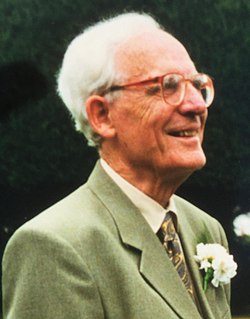A Quote by Miyamoto Musashi
Do not think dishonestly... Distinguish between gain and loss in worldly matters. Develop intuitive judgement and understanding for everything. Perceive those things which cannot be seen. Pay attention even to trifles. Do nothing which is of no use.
Related Quotes
As there is no worldly gain without some loss, so there is no worldly loss without some gain; if thou hast lost thy wealth, thou hast lost some trouble with it; if thou art degraded from thy honor, thou art likewise freed from the stroke of envy; if sickness hath blurred thy beauty, it hath delivered thee from pride. Set the allowance against the loss, and thou shalt find no loss great; he loses little or nothing, that reserves himself.
When I have seen by Time's fell hand defaced The rich proud cost of outworn buried age; When sometime lofty towers I see down-razed And brass eternal slave to mortal rage; When I have seen the hungry ocean gain Advantage on the kingdom of the shore, And the firm soil win of the watery main, Increasing store with loss and loss with store; When I have seen such interchange of state, Or state itself confounded to decay; Ruin hath taught me thus to ruminate, That Time will come and take my love away. This thought is as a death which cannot choose But weep to have that which it fears to lose.
I'm interested in such things as the difference between how we perceive the world and what the world turns out to be. The difference is between the stories we tell others and the stories we tell ourselves. There is a wonderful Russian saying, which I use as the epigraph of one of my novels, which goes, He lies like an eyewitness. Which is very sly, clever and true.
It is the duty of the human understanding to understand that there are things which it cannot understand, and what those things are. Human understanding has vulgarly occupied itself with nothing but understanding, but if it would only take the trouble to understand itself at the same time it would simply have to posit the paradox.
Do you not think that there are things which you cannot understand, and yet which are; that some people see things that others cannot? But there are things old and new which must not be contemplate by men´s eyes, because they know -or think they know- some things which other men have told them. Ah, it is the fault of our science that it wants to explain all; and if it explain not, then it says there is nothing to explain.
Those that think that wealth is the proper thing for them cannot give up their revenues; those that seek distinction cannot give up the thought of fame; those that cleave to power cannot give the handle of it to others. While they hold their grasp of those things, they are afraid of losing them. When they let them go, they are grieved and they will not look at a single example, from which they might perceive the folly of their restless pursuits - such men are under the doom of heaven.



































